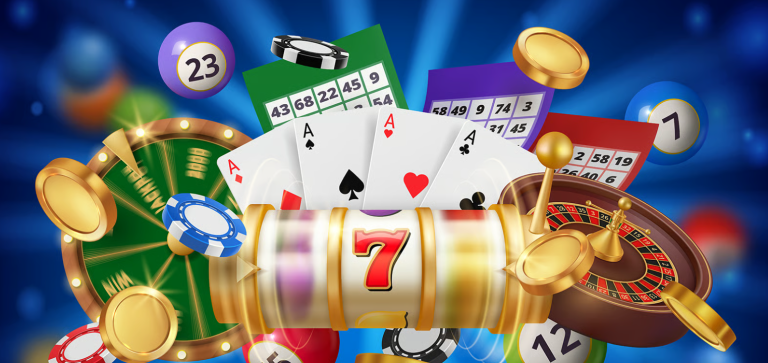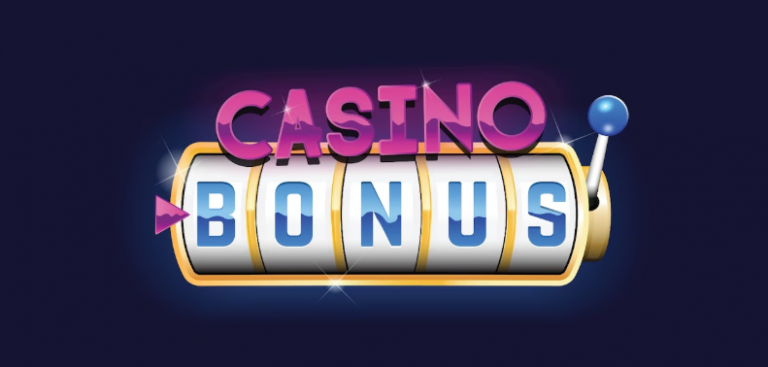The World of Elite Online Gambling for American Players
The modern world of online gambling has turned into a true arena for champions, where every player can show their skills and strategic thinking. In the USA, the digital gambling industry is experiencing a real boom, attracting millions of participants in search of big wins and unforgettable emotions. Lucky League has become one of the leading platforms uniting the best players in the USA in their pursuit of excellence.
The US online gambling market is projected to reach $153 billion by 2030, with over 125 million Americans expected to participate in some form of online gambling.
Elite players form a special category of gamers who have turned a hobby into an art, using advanced strategies and mathematical approaches.
Introduction to the World of Elite Gambling
What the Elite Arena of Online Gambling Is
The elite arena of online gambling is a highly competitive environment where professional players demonstrate mastery in various disciplines. This environment is characterized by high stakes, complex strategies, and constant skill development.
Elite players typically dedicate 40-60 hours per week to studying game theory, analyzing their play, and practicing with purpose. Success requires treating gambling as a serious profession, not casual entertainment.
Professional players differ from amateurs by a systematic approach to the game, a deep understanding of mathematics and psychology, and strict discipline in bankroll management. They study statistics, analyze patterns, and constantly improve their methods.
The Evolution of Online Gambling in the USA
In recent years, the American online gambling market has undergone dramatic changes. Legalization in various states has opened new opportunities for players and operators. Modern technologies, including artificial intelligence and blockchain, have revolutionized the gaming experience.
Industry regulation ensures safety and game fairness, which is especially important for elite players who invest significant sums. Algorithm transparency and independent audits create a trustworthy environment for professional play.
A Complete Guide for Beginning Champions
Fundamentals of Strategic Thinking
The first step toward becoming an elite player is developing strategic thinking. This includes understanding probability theory, studying the mathematical foundations of games, and developing analytical abilities.
Studies show that professional gamblers have 23% better pattern recognition abilities and 31% faster decision-making skills compared to recreational players.
Step-by-step instructions for beginners:
- Study theory — master the basic concepts of probability and statistics
- Choose a specialization — focus on 1–2 types of games
- Practice with minimal stakes — hone strategies without large risks
- Keep detailed statistics — record all results and analyze them
- Study the experience of professionals — read books, watch training videos
- Develop emotional control — learn to manage emotions during play
- Increase stakes gradually — grow only after confirming a strategy’s success
Bankroll Management for Professionals
Effective bankroll management is the cornerstone of successful play. Professional players never risk more than they can afford to lose.
Basic principles of money management:
- Never play with borrowed money
- Set clear daily, weekly, and monthly limits
- Use the rule of 1–5% of total bankroll per session
- Withdraw profits regularly
- Keep a detailed record of income and expenses
Types of Elite Players and Their Characteristics
Mathematicians and Analysts
This category of players relies on precise calculations and statistical analysis. They study RTP (Return to Player), game volatility, and use complex mathematical models for decision-making.
Mathematical players achieve an average ROI of 8-12% annually, compared to 2-4% for intuitive players. However, they require 3x more preparation time per session.
Distinctive features:
- Deep knowledge of probability theory
- Use of specialized software
- Systematic approach to every game
- Minimization of the emotional factor
Intuitive Strategists
Intuitive players develop a feel for the game through many years of experience. They can “read” situations and make quick decisions based on accumulated experience.
Key skills:
- Developed intuition and sense of timing
- Ability to adapt quickly to changes
- Understanding of the psychological aspects of play
- Flexibility in the choice of strategies
Technological Innovators
Modern elite players actively use advanced technologies to gain an edge. This includes big data analysis, using AI for forecasting, and automating routine processes.
Players using AI-assisted analysis tools report a 40% improvement in decision accuracy and 25% reduction in costly mistakes compared to traditional methods.
Comparative Analysis of Gaming Strategies
Conservative vs Aggressive Approaches
Short-Term vs Long-Term Strategies
Professional players must understand the differences between short-term and long-term approaches to play. Short-term strategies focus on quick results, while long-term ones aim at steady capital growth.
Short-term strategies:
- High volatility
- Rapid decisions
- Greater emotional stress
- Suitable for tournaments
Long-term strategies:
- Result stability
- Systematic development
- Less stress
- Suitable for career players
Practical Recommendations for Champions
Psychological Preparation
Mental resilience plays a critical role in the success of an elite player. Developing psychological toughness requires constant work on oneself.
Elite players spend an average of 30 minutes daily on mental conditioning exercises, including meditation, visualization, and breathing techniques. This reduces tilt incidents by 65%.
Key aspects of psychological preparation:
- Emotion control — learn to remain calm in stressful situations
- Stress management — use relaxation and meditation techniques
- Positive thinking — focus on the process, not only the result
- Self-discipline — strictly follow established rules
- Adaptability — be ready to change strategy when necessary
Technical Aspects of Professional Play
Modern technologies provide elite players with many tools for analysis and performance improvement.
Required software:
- Game statistics trackers
- Probability calculators
- Data analysis programs
- Bankroll management apps
Information Blocks: Key Concepts
Important Terms for Elite Players
- RTP (Return to Player) — the percentage of wagers a game returns to players over the long term. Elite players always study this indicator before starting.
- Volatility ⚡ — the measure of variability in payouts. High volatility means rare but large wins; low means frequent but small.
- Bankroll management — a system of managing a gaming budget, including setting limits, allocating funds, and controlling expenses.
- Poker face — the ability to hide emotions and intentions, critically important in games against other players.
Mathematical Foundations of Successful Play
Understanding mathematical principles is the basis of a professional approach to gambling. Elite players study:
- Probability theory for calculating chances of winning
- Expected value to assess long-term profitability
- Variance to understand result dispersion
- Law of large numbers for planning long-term strategy
Pros and Cons of Elite Gambling ⚖️
Advantages of Professional Play
- ✅ High income potential — successful players can earn significant sums
- ✅ Intellectual challenge — constant development of analytical abilities
- ✅ Flexible schedule — the ability to play at convenient times
- ✅ International community — interaction with players worldwide
- ✅ Continuous learning — the need to study new strategies and technologies
- ✅ Adrenaline and emotions — vivid impressions from big wins
- ✅ Skill development — improved mathematical and analytical abilities
Disadvantages and Risks
- ❌ Financial risks — the possibility of significant losses with poor management
- ❌ Emotional stress — high psychological strain
- ❌ Unstable income — unpredictable short-term results
- ❌ Time costs — the need to devote much time to study and practice
- ❌ Social isolation — the risk of spending too much time alone
- ❌ Legal restrictions — various limits in different jurisdictions
- ❌ Addiction — risk of gambling addiction without self-control
Studies indicate that only 3-5% of aspiring professional gamblers achieve sustainable long-term profitability. The vast majority experience net losses over their gambling careers.
Detailed Analysis of Popular Games
Comparative Table of Games by Complexity and Potential
Specific Strategies for Each Type of Game
Every game requires a unique approach and specialized knowledge. Professional players often specialize in one or two types of games, achieving maximum mastery in them.
Professional players focus 80% of their time on games where skill significantly impacts outcomes (poker, blackjack, sports betting) rather than pure chance games.
Strategies for card games:
- Card counting in blackjack
- Reading opponents in poker
- Bankroll management in baccarat
Approaches to games of chance:
- Choosing slots with high RTP
- Using progressive betting systems
- Timing and session control
Technological Innovations in Gambling
Artificial Intelligence and Machine Learning
Modern elite players actively use AI to analyze gaming situations, forecast results, and optimize strategies. Machine learning helps uncover hidden patterns in large data sets.
AI applications in gambling:
- Analyzing game history to identify trends
- Automatic calculation of optimal bets
- Predicting opponent behavior
- Optimizing timing for entering and exiting a game
Blockchain and Cryptocurrencies
Blockchain technology ensures transparency and game fairness, which is especially important for professional players. Cryptocurrencies provide additional opportunities for fast and anonymous transactions.
Over 40% of elite online gamblers now use cryptocurrencies for at least half of their transactions, citing faster withdrawals and enhanced privacy as key benefits.
The Development of an Elite Player’s Career
Stages of Professional Growth
Becoming an elite player is a long process that can be divided into several stages:
- Beginner (0–6 months) — learning fundamentals, minimal stakes
- Amateur (6 months–2 years) — skill development, bankroll growth
- Semi-professional (2–5 years) — specialization, stable results
- Professional (5+ years) — expertise, teaching others
- Elite player — community recognition, innovative strategies
Building a Reputation in the Community
Successful players actively participate in the professional community, share experience, and build their reputation. This opens additional opportunities for income and development.
Building a strong online presence through streaming, blogging, or coaching can increase a professional player’s income by 200-300% through sponsorships and affiliate partnerships.
Ways to build reputation:
- Participation in tournaments and championships
- Publishing training materials
- Mentoring beginners
- Taking part in professional conferences
Legal Aspects and Regulation
Legality of Online Gambling in the USA
The legal situation with online gambling in the USA is complex and constantly evolving. Each state has its own laws and regulations, creating a mosaic of legality for different forms of gambling.
Key points of legislation:
- Federal laws vs state laws
- Licensing of operators
- Taxation of winnings
- Player protection
Responsible Gaming
Elite players understand the importance of a responsible approach to gambling. This includes not only risk management, but also maintaining a healthy balance between gaming and other aspects of life.
Professional players who maintain strict time limits and regular breaks report 60% lower burnout rates and 45% longer careers than those who don’t implement these boundaries.
Principles of responsible gaming:
- Setting clear time and financial limits
- Regular breaks and rest
- Seeking professional help when necessary
- Maintaining social connections outside the gaming community
The Path to the Pinnacle of Mastery
The elite arena of online gambling is a fascinating world of opportunities for those ready to devote time and effort to developing professional skills. Success in this field requires a combination of mathematical knowledge, psychological resilience, technical literacy, and continuous self-improvement.
Remember: becoming an elite player is a marathon, not a sprint. Success comes to those who treat gambling as a skill-based profession requiring continuous education, disciplined practice, and emotional intelligence.
Modern technologies open new horizons for elite players, providing tools for deep analysis and strategy optimization. However, it is important to remember that at the core of any success lie fundamental principles: discipline, patience, and constant learning.
For American players, the developing market of legal online gambling creates unique opportunities for professional growth. With the right approach and adherence to responsible gaming principles, the path of an elite player can become not only a source of income but also an engaging intellectual challenge for many years.




